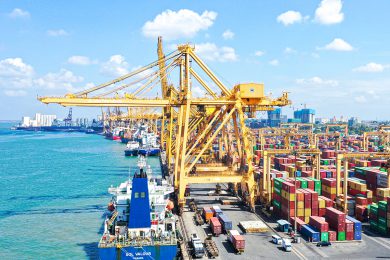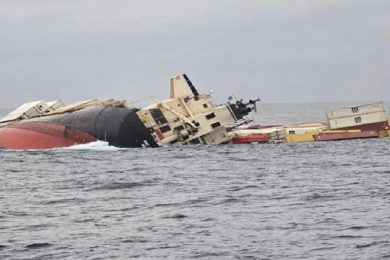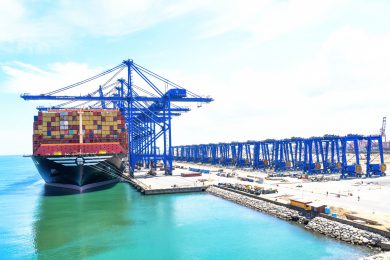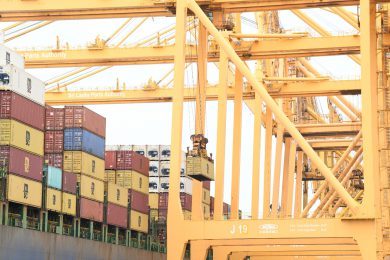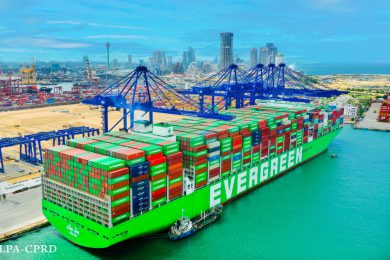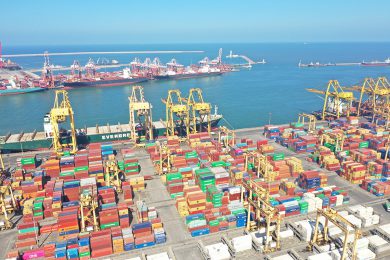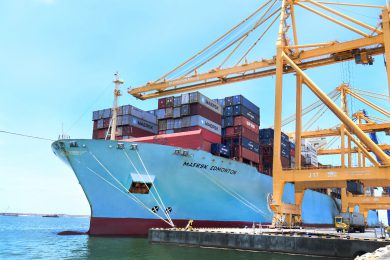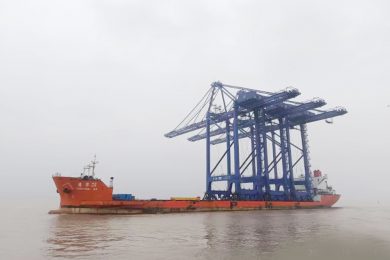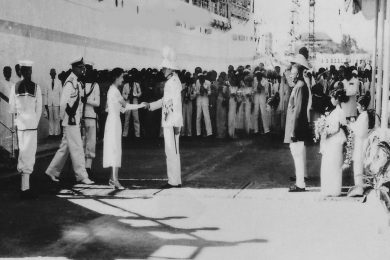Following excerpts from the report issued by UNCTAD
Maritime transport underpins global supply chain linkages and economic interdependency with shipping and ports estimated to handle over 80 per cent of global merchandise trade by volume and more than 70 per cent by value. As a result, when disruptive factors such as pandemics occur, the sector works as a transmission channel that sends shockwaves across supply chains and regions. Disrupted transport networks and supply chains can significantly undermine world trade and economic activity. With developing countries playing a large role in global maritime transport and trade, and with vulnerable economies such as small island developing states (SIDS) depending heavily on maritime transport for their livelihood and access to the global marketplace, safeguarding the integrity of the maritime transport chain is a sustainable development imperative. SIDS are already burdened by disproportionately high transport costs and low shipping connectivity making their trade uncompetitive and costly.
The Coronavirus disease (COVID-19) triggered a global health and economic crisis with wide-ranging implications for maritime transport and trade. Restrictions introduced in response to the pandemic have caused disruptions affecting ports, shipping, and supply chains. Various industries faced challenges along their supply chain such as raw material shortages, lead time issues, ocean blank sailings, port closures, reduced working hours at ports, equipment, and labor shortages, as well as truck/transport capacity constraints. These obstacles undermine the smooth movement of trade flows and supply chain operations and can significantly erode the transport services trade liberalization and trade facilitation gains achieved over the years.
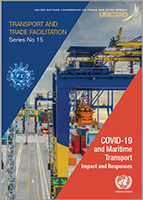
While the longer-term impact of the COVID-19 outbreak is yet to be fully understood, all indicators are pointing to significant immediate challenges for the sector. These differ depending on the maritime transport segment (e.g., container, bulk, reefer, tanker) and whether the transport operation is domestic or international. They also vary by region, level of development, and the state of prior preparedness to shocks and disruptions. Countries with a high share of forward and backward global value chain participation are more vulnerable to supply chain disruptions.
Countries having relatively higher shares of backward value chain participation are likely to be the most vulnerable. Meanwhile any disproportionately negative impact on vulnerable economies such as SIDS and landlocked developing countries (LLDCs) and the least developed countries (LDCs) where logistical and developmental challenges are already significant, can be detrimental for their sustainable development aspirations. Strengthening the capacity of countries to anticipate and recover from disruptions affecting their maritime supply chain is crucial. This requires a good understanding of how the COVID-19 affected the sector, including the challenges faced and the solutions that had been adopted. Therefore, and building on its broad mandate in the field of transport and trade facilitation, UNCTAD carried out a preliminary assessment of the immediate impacts of the COVID-19 disruption on the maritime supply chain and trade over the first half of 2020.
The assessment was articulated around the following issues:
• Impacts of the COVID-19 on the maritime supply chain and challenges faced.
• Response measures introduced by relevant stakeholders.
• Lessons learned and implications for the maritime supply chain of the future.
Against this background, Chapters 1 and 2 of the present report describe the immediate impacts of the pandemic on maritime trade flows, ship calls, and liner shipping connectivity in the first half of 2020. Chapter 3 highlights relevant responses and adjustments made at the port level as well as by other stakeholders across the maritime supply chain to cope with the disruption and maintain business continuity, while at the same time, protecting workers and ensuring timely delivery of essential goods during the crisis. The assessment has generated some key findings and identified some lessons and good practices that could be leveraged to develop guidance and tools with a view to greater maritime supply chain resilience and preparedness in the face of shocks and disruptions.
COVID-19 and maritime transport: Navigating the crisis and lessons learned is available to download for free from the UNCTAD website.



